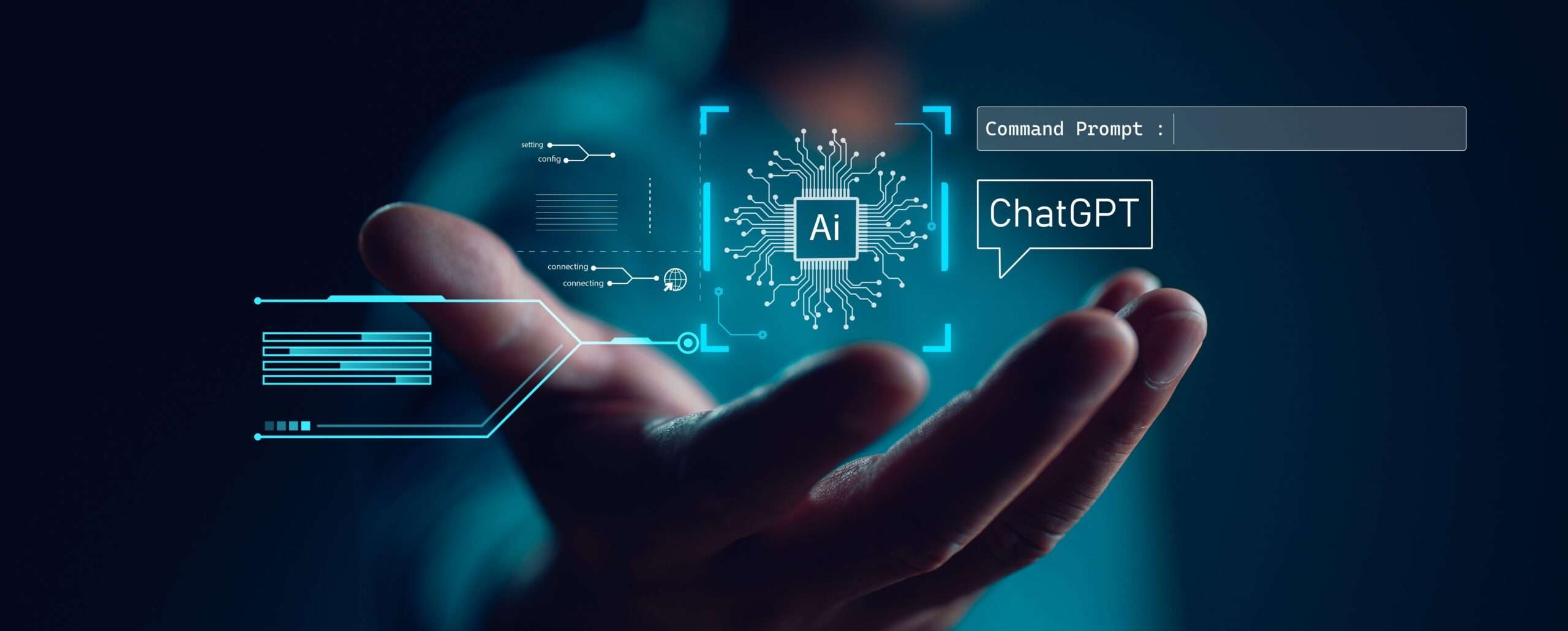ChatGPT can technically provide basic legal advice, but it is not recommended to rely on it. While it can assist with legal research and finding case law, court opinions, and precedents, it is not reliable for writing legal documents such as briefs and letters.
Legal AI tools like ChatGPT can be helpful for lawyers in terms of cross-referencing and analyzing legal research, but they have limitations and should be used cautiously. We will explore how lawyers can utilize ChatGPT effectively, provide some examples of ChatGPT prompts for lawyers, and discuss the advantages and disadvantages of using AI in the legal profession.
What Is Chatgpt?
html
ChatGPT is an AI language model developed by OpenAI. It is designed to engage in text-based conversations and provide responses based on the input it receives. ChatGPT is trained on a large dataset of public data, making it capable of generating human-like text and answering a wide range of questions.
| Definition of ChatGPT | How ChatGPT differs from traditional chatbots |
|---|---|
| ChatGPT is an AI language model developed by OpenAI. It is designed to engage in text-based conversations and provide responses based on the input it receives. ChatGPT is trained on a large dataset of public data, making it capable of generating human-like text and answering a wide range of questions. | Unlike traditional chatbots, which typically follow a rule-based approach, ChatGPT uses a machine learning algorithm to generate responses. This allows ChatGPT to understand and respond to a variety of queries, even if they are not explicitly programmed into its system. Additionally, ChatGPT can generate more contextually appropriate and coherent responses compared to traditional chatbots. |
Building A Chatgpt Lawyer Prompt
Building a ChatGPT Lawyer Prompt is an effective way to leverage AI technology for legal tasks. To develop a lawyer prompt for ChatGPT, it is essential to follow best practices to ensure reliable and accurate results. When training ChatGPT with legal data, it is important to consider the following:
- Select relevant legal data sources such as case law, court opinions, and precedents.
- Preprocess the data to remove any irrelevant or sensitive information.
- Create a comprehensive and diverse training dataset to enhance the model’s understanding of legal concepts and language.
- Implement fine-tuning techniques to further refine the model’s performance for legal tasks.
- Continuously evaluate and update the prompt based on feedback and real-world use cases.
By following these guidelines, legal professionals can effectively harness the power of ChatGPT for tasks like legal document generation, research assistance, and more. Remember, although ChatGPT can provide basic legal advice, it should not replace human expertise and judgment.
The Applications Of Chatgpt In The Legal Industry
Advantages of using ChatGPT for legal applications:
1. Real-world use cases of ChatGPT in the legal industry: ChatGPT is being increasingly utilized by legal professionals for various tasks such as research, drafting legal documents, and providing basic legal advice.
2. Research assistance: Since ChatGPT has been trained on a vast amount of public data, it can quickly find relevant case law, court opinions, and precedents, aiding lawyers in their research process.
3. Document generation: ChatGPT can generate complete legal documents based on specific information and instructions provided by the user. Templates make the process efficient and accurate.
4. Style and language assistance: ChatGPT can assist lawyers with writing styles and language in legal briefs, ensuring documents are concise and professional.
5. Internal resource for effective prompts: Legal firms can create an internal resource of effective ChatGPT prompts, improving productivity and accuracy in providing legal advice and information.
The Role Of Chatgpt In Providing Legal Assistance
The role of ChatGPT in providing legal assistance is significant, particularly in enhancing legal research and improving client communication and support. With its advanced language processing capabilities, ChatGPT can assist lawyers in researching legal information by finding case law, court opinions, and precedents from its extensive database. This AI tool also aids in cross-referencing and analyzing legal research, making it an invaluable resource in legal practice. Additionally, lawyers can utilize ChatGPT to draft legal documents by inputting specific information and instructions, which the system then uses to generate complete documents tailored to the user’s needs. It is important to note that while ChatGPT can provide basic legal advice, it is not recommended as a reliable source. To optimize its use, legal firms can create internal resources for effective ChatGPT prompts, ensuring that the tool is leveraged to its fullest potential in providing legal assistance.
Evaluating The Effectiveness Of Chatgpt For Legal Tasks
| Evaluating the Effectiveness of ChatGPT for Legal Tasks |
| Measuring the accuracy and reliability of ChatGPT responses |
| ChatGPT, an AI-powered language model developed by OpenAI, has shown promise in assisting legal professionals with various tasks. While it is capable of providing basic legal advice and help with researching, it is important to note that ChatGPT should not be solely relied upon for critical legal matters. The AI tool can help lawyers find case law, court opinions, and precedents, making the research process more efficient. It can also assist with creating legal documents by utilizing pre-defined templates and generating complete documents based on specific instructions. However, it is crucial for legal professionals to exercise caution when using ChatGPT and to verify the accuracy and reliability of its responses. Comparative studies between ChatGPT and human lawyers in specific legal tasks can provide valuable insights into the strengths and limitations of the technology. |
Ethical Considerations Of Using Chatgpt In Legal Practice
html
While ChatGPT can provide basic legal advice, it is not recommended to solely rely on it for your legal needs due to its limitations. The AI tool can assist in generating legal documents, providing style suggestions, and aiding in legal research. However, it is important to be cautious of potential biases in ChatGPT responses that may exist due to the training data and algorithms used.
When using ChatGPT in legal practice, it is essential to ensure privacy and confidentiality. As with any AI-powered tool, data security is a significant concern. Taking necessary precautions such as using secure communication channels and transferring sensitive information through encrypted methods can help protect client confidentiality.
Legal professionals should use ChatGPT as a supplementary tool rather than a replacement for human expertise. Engaging in ongoing training and professional development to stay updated with legal trends and changes is crucial. Additionally, critically evaluating and cross-referencing information generated by ChatGPT can help mitigate risks and ensure accurate legal advice.
Future Prospects: The Evolution Of Chatgpt In The Legal Field
Future Prospects: The Evolution of ChatGPT in the Legal Field
The potential advancements and developments in ChatGPT technology have significant implications on the future of legal practice. While ChatGPT is capable of providing basic legal advice, it is not recommended to solely rely on it for such matters. However, the AI tool can assist lawyers in various ways.
ChatGPT can help lawyers with research by analyzing a large body of public data, including case law, court opinions, and precedents. This AI-powered tool can efficiently find relevant information, cross-reference data, and aid in legal analysis. It also offers the convenience of creating legal documents through pre-defined templates and advanced language processing capabilities.
Legal firms can leverage ChatGPT prompts as an internal resource by creating effective prompts for various use cases. These prompts can be used to complete tasks, answer questions, or provide information. By utilizing ChatGPT in the right way, lawyers can enhance their legal practice and streamline their workflow.
Overcoming Challenges In Implementing Chatgpt As A Legal Tool
Overcoming challenges in implementing ChatGPT as a legal tool involves addressing limitations and shortcomings. One strategy is to focus on training and fine-tuning ChatGPT specifically for legal applications. By providing it with a large body of public data related to the legal field, ChatGPT can be trained to find relevant information such as case law, court opinions, and precedents. This can assist lawyers in their research process, cross-referencing, and analyzing legal research tasks. Additionally, specific instructions and templates can be used when writing legal letters or documents using ChatGPT. While basic legal advice can be provided by ChatGPT, it is important to remember that it is not a substitute for professional legal advice and should be used cautiously. To effectively leverage ChatGPT as a legal tool, legal firms can create internal resources and effective prompts tailored to their specific needs and use cases.
Frequently Asked Questions On Chatgpt Lawyer Prompt
Can You Ask Chatgpt For Legal Advice?
While ChatGPT is technically capable of providing basic legal advice, it is not recommended to rely on it for legal matters. Legal advice should always be sought from a qualified legal professional.
Can You Use Chatgpt To Write A Legal Brief?
No, ChatGPT can assist with the style of a legal brief, but it is not reliable for research and content generation. It is recommended to consult with a qualified attorney for writing a legal brief.
How Do Lawyers Use Chatgpt?
Lawyers use ChatGPT for researching case law, court opinions, precedents, and analyzing legal research. It can also assist in drafting legal documents using pre-defined templates and advanced language processing capabilities. However, it is not recommended to seek legal advice directly from ChatGPT.
How Do I Write A Legal Letter On Chatgpt?
To write a legal letter on ChatGPT, follow these guidelines: 1. Keep sentences short, with a maximum of 20 words each. 2. Write in an SEO-friendly, human-like, unique, and plagiarism-free style that is easy to understand and in the active voice.
3. Avoid starting sentences with specific words or phrases and do not use passive voice. 4. Ensure the content passes AI writing detection and resembles human writing. 5. Create the legal letter on ChatGPT by providing specific information and instructions.
The system will use advanced language processing capabilities to generate a complete document based on the user’s needs.
Conclusion
While ChatGPT can assist lawyers in various tasks such as legal research and document generation, it is important to note that it should not be solely relied upon for providing legal advice. Its capabilities are limited and should be used as a tool in conjunction with human expertise.
By understanding the limitations and leveraging it effectively, lawyers can enhance their legal practice with the help of ChatGPT.


